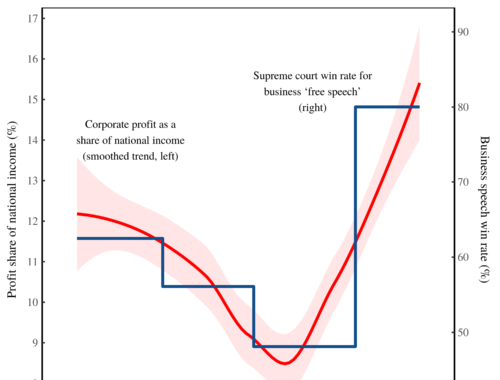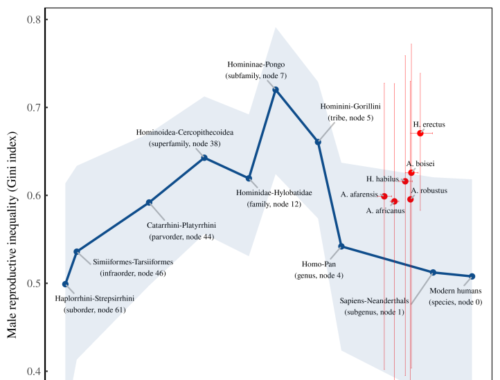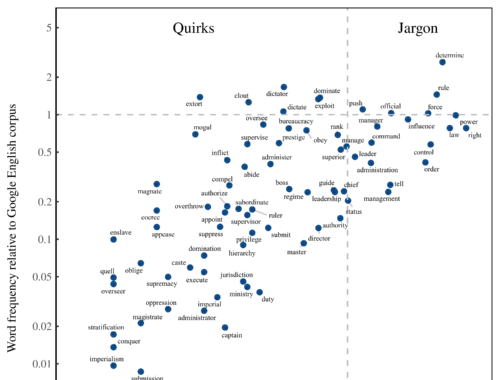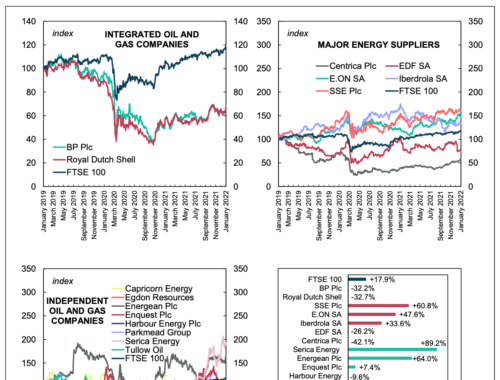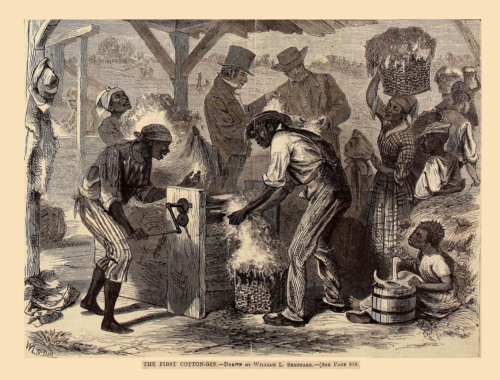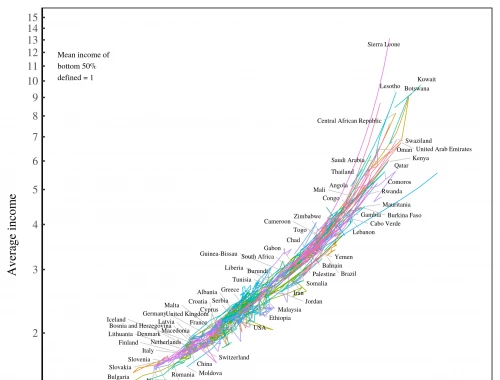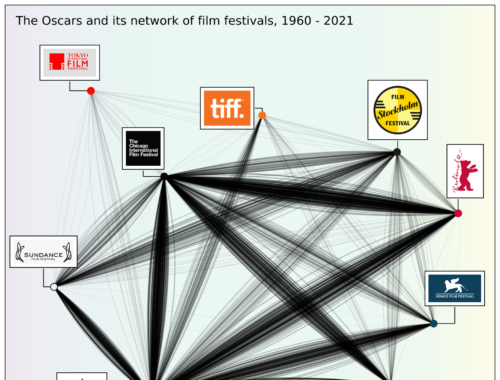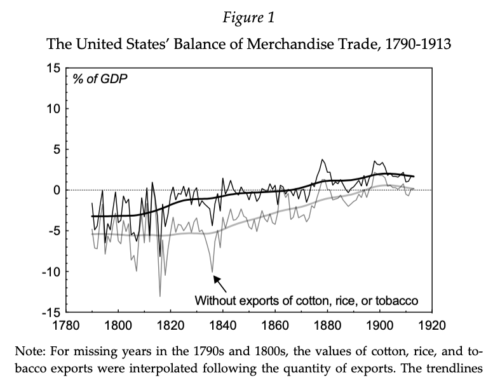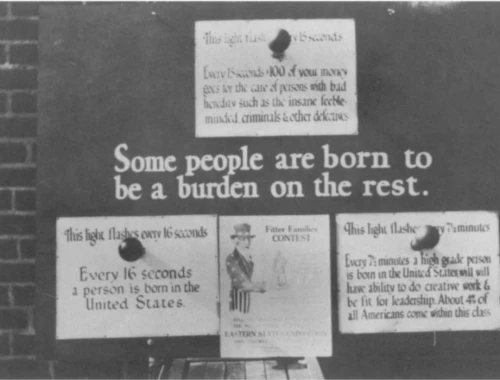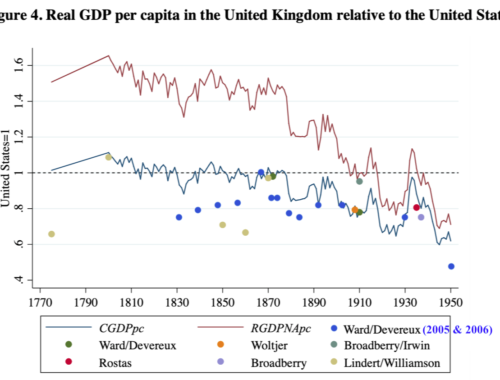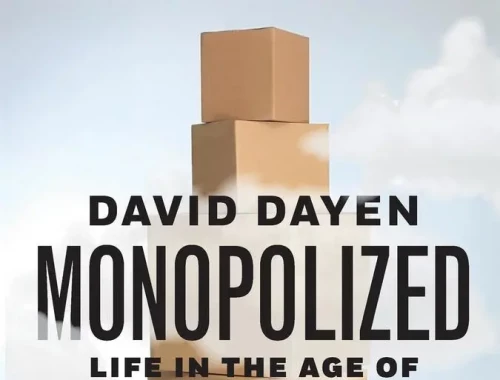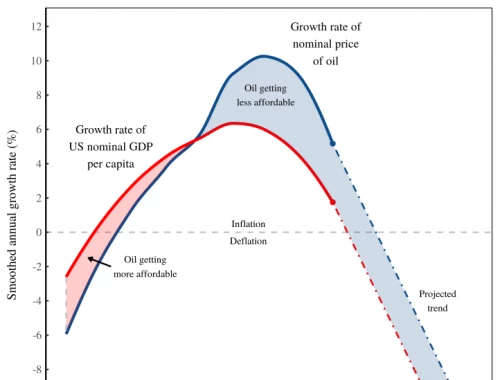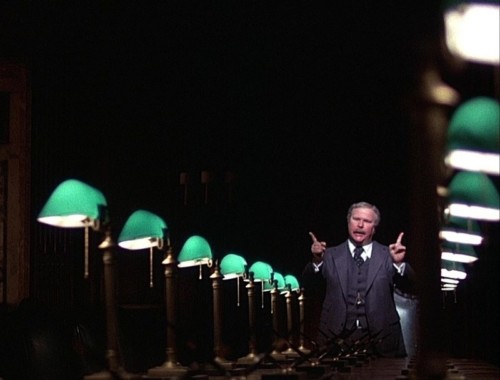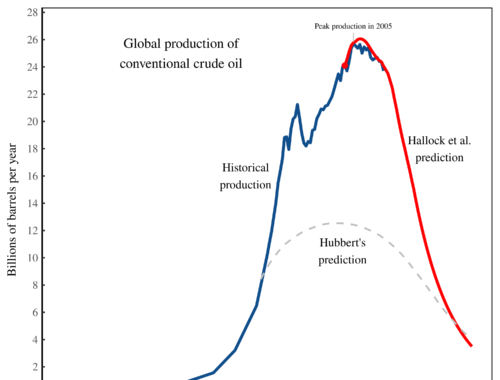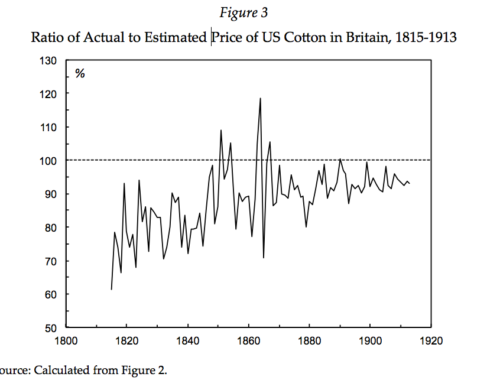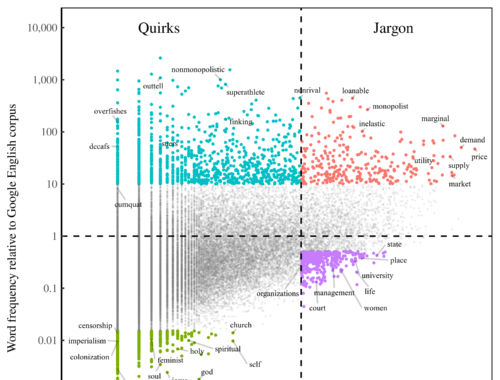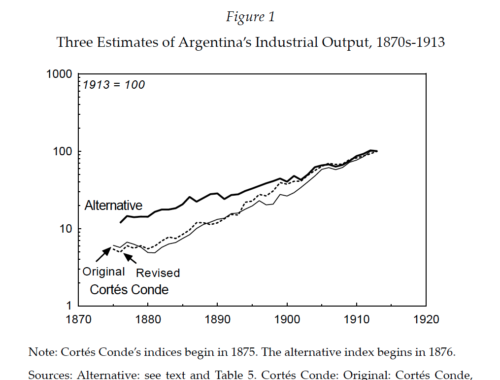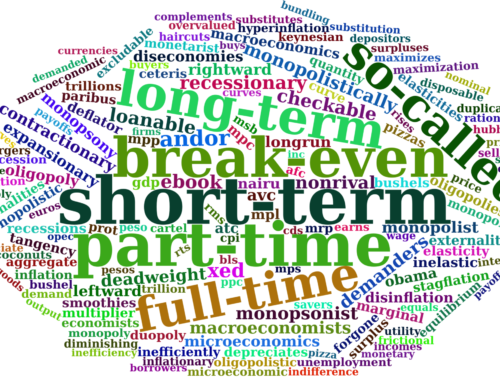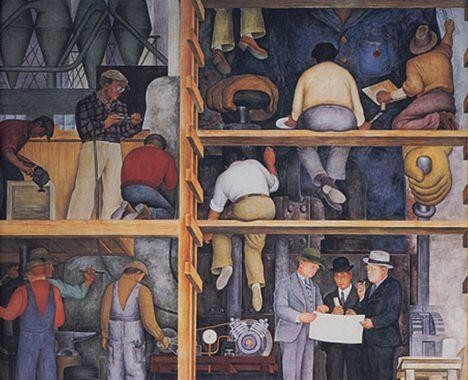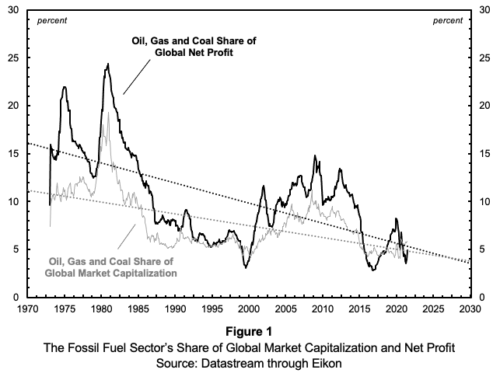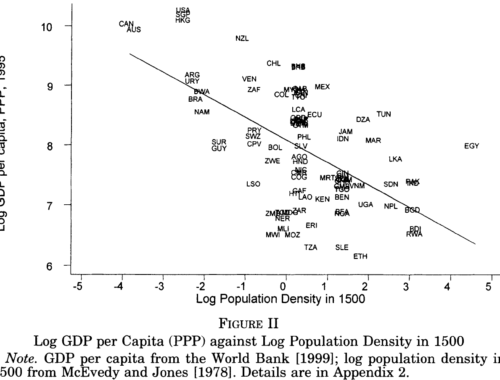Blog
Originally published at Economics from the Top Down Blair Fix They say that Americans love two things: freedom … and guns. The trouble with guns is obvious. The trouble with freedom is more subtle, and …
Originally published at notes on cinema James McMahon On the question of who judges the quality of a film, it is easy to start with a notion that the ultimate judge of a film’s quality …
Blair Fix The Review of Capital as Power is pleased to announce the winners of the 2022 Capital as Power Essay Prize: First Prize: ‘Costly Efficiencies: Healthcare Spending, COVID-19, and the Public/Private Healthcare Debate’, by …
Originally published at pluralistic.net Cory Doctorow Two of the most astute IP scholars I know also happen to be two of the best legal writers I know, and also happen to work at one of …
Originally published at Economics from the Top Down Blair Fix Man is born free, yet he is everywhere in chains. — Jean-Jacques Rousseau, 1762 In his epic 18th-century treatise Discourse on Inequality, Jean-Jacques Rousseau argued …
Originally published at pluralistic.net Cory Doctorow In my 2017 novel WALKAWAY, there’s a scene where the protagonists get into a self-driving car owned by a ruthless plutocrat, only to discover that it moves faster than …
Originally published at Economics from the Top Down Blair Fix A few months ago, I went down a rabbit hole analyzing word frequency in economics textbooks. Henry Leveson-Gower, editor of The Mint Magazine, thought the …
Originally published at pluralistic.net Cory Doctorow The quest to bring antitrust law to bear against tech companies is finally paying off, but it’s been a long, hard slog. At the vanguard have been two legal …
Originally published at Economics from the Top Down Blair Fix Today a rant about textbooks. Every year governments spend billions of dollars on public education, teaching students knowledge that was itself created by publicly funded …
Originally published at notes on cinema James McMahon We ended the last post with a scenario of someone dreaming of their film going all the way to the Academy Awards. But I also waved away …
Jonathan Nitzan and Shimshon Bichler Originally published on Twitter During the twilight of feudalism, wars, whose cost soared in tandem with their material scope and unit price, were the most financially demanding expenses. Changing military …
Originally published at joefrancis.info Joe Francis In a new working paper I outline how slavery contributed to the development of the United States before the Civil War. The paper is called ‘King Cotton, the Munificent’ …
Originally published at pluralistic.net Cory Doctorow If you visit Amazon’s Prime Video homepage, you’ll see that the title of that page is “Rent or Buy: Prime Video.” There’s a plain-language meaning of “buy” that most …
Originally published at Economics from the Top Down Blair Fix Let’s talk econophysics. If you’re not familiar, ‘econophysics’ is an attempt to understand economic phenomena (like the distribution of income) using the tools of statistical …
Originally published at sbhager.com Sandy Brian Hager Joseph Baines and I have a new briefing with Common Wealth examining the financial performance of UK oil and gas producers and energy suppliers. Some of the key …
Originally published at joefrancis.info Joe Francis The dominant view among economic historians is that American slavery was an unnecessary evil: nothing good came of it for the development of the United States after independence. Even …
Originally published at pluralistic.net Cory Doctorow Don’t let the sweater-vests and the (dilettantish) “education reform” work fool you: Bill Gates made his fortune through sheer robber-baronry, presiding over a vicious monopolist that shattered the law …
Originally published at Economics from the Top Down Blair Fix Pity the billionaires. High in the towers on Billionaires’ Row, life is hard. The pencil-thin buildings groan as they sway in the wind, keeping penthouse …
Originally published at notes on cinema James McMahon Sitting through the Academy Awards ceremony can be frustrating if you watch a lot of films. The breadth of your viewings has given you the perspective to …
Originally published at joefrancis.info Joe Francis Unless you are Mexican, it is easy to forget that California was not always in the United States, having been a part of Mexico until the Mexican-American War of …
Originally published at pluralistic.net Cory Doctorow Our societal narratives are invisible by dint of their ubiquity, but they are far more important in stabilizing the status quo that all the cops and jails and domestic …
Originally published at Economics from the Top Down Blair Fix If there was an award for the most pernicious scientific idea ever, what theory should get first prize? I would vote for eugenics, a theory …
Originally published at joefrancis.info Joe Francis One of my favourite graphs in recent writing on economic history might seem obscure. Reproduced below, it is found on page 28 of the working paper underlying the latest …
Originally published at pluralistic.net Cory Doctorow Monopolized: Life in the Age of Corporate Power is David Dayen’s new book about the concentration of industry in America and around the world; one interesting implication of monopolies …
Originally published at dtcochrane.com DT Cochrane Commissioned and originally published by The Blackwood Art Gallery at the University of Toronto Mississauga. As I write this, disability justice advocates are rallying in opposition to Bill C-7, …
Originally published at Economics from the Top Down Blair Fix It was a bet heard around the world. Okay, that’s an exaggeration. It was a bet heard mostly by academics and sustainability buffs. But still, …
Originally published at joefrancis.info Joe Francis Following the Second World War, there was a worldwide dollar shortage due to the United States’ high level of self-sufficiency as an agro-industrial behemoth. Governments therefore imposed quantitative controls …
Originally published at ownlynch.org Owen Lynch Part A: Overview 1. A Need for Better Theory If you are a well-educated person in the 21st century, you probably have conflicted views. On the one hand, the …
Originally published at pluralistic.net Cory Doctorow In his 2019 book Dignity, Chris Arnade left his Wall Street job and traveled America, talking to poor, marginalized people, mostly at McDonald’s restaurants. Now, in a new essay …
Originally published at notes on cinema James McMahon A survey of academic writing on the business of culture will show that authors seldomly restrain themselves from making predictions or giving recommendations to the hypothetical economic …
Originally published at Economics from the Top Down Blair Fix Do you remember peak oil? It was all the rage a decade ago. Now, almost no one is talking about it. The funny thing is, …
Originally published at joefrancis.info Joe Francis Giovanni Federico and Antonio Tena-Junguito (2016) have produced a data set of world trade that includes exports and imports, in both current and constant prices, going back to the …
Originally published at pluralistic.net Cory Doctorow A YouGov poll found 80% of Britons “would prefer the government to prioritise health and wellbeing over economic growth during the crisis, and 6 in 10 would still want …
Originally published at sbhager.com Sandy Brian Hager In a new briefing with Common Wealth, Miriam Brett, Joseph Baines and I examine ownership and financial data for the “Big Six” UK energy companies: Centrica (British Gas), …
Originally published at Economics from the Top Down Blair Fix It’s been 20 years, but I still remember the feeling. It was a mix of curiosity and unease. I was curious because I was learning …
Originally published at joefrancis.info Joe Francis In a previous post I discussed a working paper in which I criticised Roberto Cortés Conde’s estimates of Argentina’s industrial output from 1875 to 1913. In a new version …
Originally published at pluralistic.net Cory Doctorow The Internet Society (ISOC) is a nonprofit that is in the enviable position of receiving tens of millions of dollars every year merely for overseeing work that someone else …
Originally published on Economics from the Top Down Blair Fix This post begins with a sigh. For the last month, I’ve been working on a project that analyzes word frequency in economics textbooks. I’d hoped …
Originally published at notes on cinema James McMahon I have been fortunate enough to teach university classes on politics and film. I am certain few students in these classes could guess how stressful it was …
Originally published at joefrancis.info Joe Francis When a prominent economic historian provides a new estimate of something, it is likely that the estimate will be taken at face value. Other economic historians will cite it, …
Originally published at pluralistic.net Cory Doctorow Thomas Piketty’s “Capital in the 21st Century” advanced a simple, data-supported hypothesis: that markets left to their own will cause capital to grow faster than the economy as a …
Originally published on Economics from the Top Down Blair Fix It was a Thursday in August when all hell broke loose. The place was Logan County, West Virginia. The year was 1921. Over the next …
Originally published at joefrancis.info Joe Francis Revising our assessment of the Spanish empire is in vogue among economic historians. Most notably, Regina Grafe and Alejandra Irigoin (2006; 2008) have sought to revise the nature of …
Originally published at pluralistic.net Cory Doctorow The web is unusably beshitted and encrufted with popups, interstitials, rolldowns, nagware, paywalls, autoplaying video, ads that scroll with the page, and worse. I haven’t looked at the web …
Originally published at sbhager.com Sandy Brian Hager News of the immanent demise of companies responsible for a significant portion of global greenhouse gas emissions might sound like a boon for efforts to avert climate breakdown. …
Originally published at joefrancis.info Joe Francis Daron Acemoglu, Simon Johnson and James Robinson (AJR, 2002) famously argued that a ‘reversal of fortune’ had taken place among ex-European colonies. Generally speaking, they argued, those ex-colonies that …
Originally published at pluralistic.net Cory Doctorow “Surprise billing” is when you go to the ER and discover that the doc, the specialist, or the test you got were performed by “independent contractors” who are not …
Originally published at sbhager.com Sandy Brian Hager Switching Things Up This year I am introducing a new second year undergraduate module on theories of international political economy. Modelled on the theory module I teach on …

